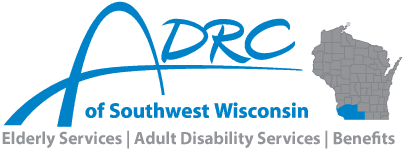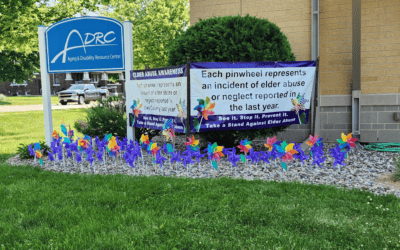Iowa County Adult Protective Services
Iowa County Adult Protective Services operates under the authority of the Wisconsin Statutes to protect persons age 60 or older and adults 18 and older with disabilities. They are authorized to protect adults from abuse while using the least restrictive interventions and preserving individual rights to the greatest extent possible.
The role of Adult Protective Services:
- Identify individuals in need of services
- Referral for services
- Coordination of services
- Tracking and follow-up
- Short term case management
- Guardianship referrals and services
- Protective Placement Reviews
- Facilitates the I-Team
- Outreach and public education
- Caregiver Support Programs
- Supportive Home Care Program
What is Elder and Vulnerable Adult Abuse
There are 6 different types of abuse:
- Physical abuse
- Emotional abuse
- Sexual abuse
- Financial Exploitation
- Neglect from Others
- Self-Neglect
How to Report Suspected Abuse
- Reach out to the ADRC
- Call Us
- Tollfree 1-800-514-0016
- Local 1-608-930-9835
- Send Us a Letter or Email
- 303 W Chapel St, Dodgeville, WI, 53533
- adrc@iowacounty.org
- Make a Report In-Person
- ADRC office is located at 303 W Chapel St, Dodgeville, WI 53533
- Call Us
- Contact the GWAAR Elder Abuse Hotline
- Call 1-833-586-0107
- Visit their website reportelderabusewi.org
Signs of Abuse
Physical Abuse: Bruises, black eyes, burns, lacerations, broken/fracture bones, wounds, or other unexplained and repeated injuries.
Emotional Abuse: Changes in demeanor. Overtly anxious, trembling, agitated, fearful, or scared behaviors. Pointing blame at themselves and worry that any conversations will “get back to” the other party.
Sexual Abuse: Unexplained injuries and bleeding in genital areas, sexually transmitted diseases.
Financial Exploitation: Sudden changes in accounts, funds/valuable possessions disappearing, bills/cares unable to be paid, and spendthrift activities.
Neglect from Others: Lack of physical or environmental cleanliness, bedsores, soiled clothing/bedding, weight loss, frailty, weakness, dehydration, untreated health problems, lack of safe living environment, lack of needed medical equipment, medications denied or not administered properly, or obvious absence of caregivers.
**Note: This does not include a decision that is made to not seek medical care for an individual, if that decision is consistent with the individual’s previously executed declaration or do-not-resuscitate order.**
Self-Neglect: Look for signs included above in Neglect by Others. Self-neglect differs from neglect because it does not involve an abuser. Instead, it occurs when an individual fails to provide or obtain for themselves adequate cares or take adequate safety precautions, and the above results in a significant danger to the individual’s physical and/or mental health.
What Happens When a Report is Made
- We may ask for your name and contact information so APS can reach out for information, but you can request to remain anonymous.
- We will ask several questions; Please answer to the best of your ability, but if you do not know everything, that is okay.
- APS will begin their investigation within 24 business hours. Ways that APS may investigate can include:
- Interviews with the individual, family members, caregivers, surrogate decision-makers, law enforcement, or other professionals
- Visits to the residence/facility
- Review of medical and financial records.
- Assessments of level of risk, decision-making capacity, potential service needs, funding sources, and support
- Assessments of interventions, voluntary or involuntary, and/or whether emergency action is warranted
World Elder Abuse Awareness Day June 15th
Thursday, June 15th is a great day to wear purple. Have a Heart, Do Your Part, and End Elder Abuse
World Elder Abuse Awareness Day
REMINDER: World Elder Abuse Awareness Day is only THREE days away! The Lafayette County ADRC is asking for your help in raising awareness on this day by posting a picture on Facebook of yourself or your group wearing purple! Please contact the ADRC at (608) 776-4960...
World Elder Abuse Awareness Day
June 15, 2023 is World Elder Abuse Awareness Day. On that day, communities all over the world will sponsor events to highlight solutions to this systemic social challenge. The Aging & Disability Resource Center of Southwest Wisconsin – Iowa County or ADRC is proud...




